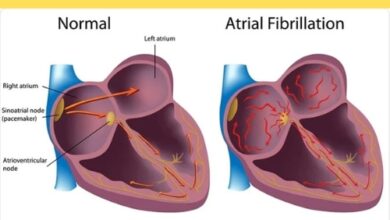Heart attack risk may be reduced by using an existing medication in a new way

Their medication has the striking ability to totally prevent blood clots from forming while keeping in vivo bleeding dangers at bay.
Rather than waiting for an entirely new medication to receive FDA approval, patients could benefit from these treatments sooner thanks to the drug’s affordability and wide availability for other purposes. In the long run, the medication may be used to stop primary heart attacks, strokes, and other consequences brought on by blood clots, as well as second heart attacks in high-risk individuals.
In a publication published in Arteriosclerosis, Thrombosis, and Vascular Biology, the researchers reported their results.
Anti-platelet medications, which might have negative side effects for the patient, are the mainstay of current preventive treatment for clots.
“Medicine puts doctors in a difficult situation—we can give you a medication that might help prevent a second cardiac event, but it might also cause a lot of bleeding,” says David Ku, the Georgia Institute of Technology’s chair for engineering entrepreneurship and a professor in the George W. Woodruff School of Mechanical Engineering (ME).
“A protein known as von Willebrand factor (VWF), which is a different target for drugs, is what holds these blood clots together.”
VWF is a lengthy protein that is found naturally in plasma and facilitates the formation of blood clots rapidly. It acts like an inert ball of yarn in normal circumstances, but when VWF unravels, it gets sticky and attracts platelets.
ME postdoctoral researcher Christopher Bresette adds, “The VWF grabs platelets and the platelets activate, so they release more VWF, which grabs more platelets, creating a positive feedback loop that leads to really fast clot formation.”
Bresette and Ku employed N-acetyl cysteine (NAC), a medication that is currently available and usually used to treat acetaminophen overdose, to try and degrade VWF proteins. Ku’s team aimed to prevent clots from ever forming, but other researchers have attempted to use NAC to dissolve clots after they had formed.
According to Bresette, “we selected NAC because of its current clinical use and safety history.” “Off-label usage of an established medication can expedite the time it takes to begin providing patient care.”
Blood was passed through a tiny opening that resembled a narrowing artery that might cause a heart attack or stroke by the researchers. NAC totally stopped a clot from developing in these circumstances. They then put NAC to the test in a mouse model and obtained similar outcomes. Better yet, NAC continued to improve arteries for an additional six hours after it was removed from circulation.
The medication, according to the researchers, will be most helpful to patients who have already experienced a heart attack but are at danger of having another one soon. NAC infusion by IV could reduce danger right away. In the future, NAC compounds might be taken orally as a daily pill to lower the risk of a heart attack.
Strokes and heart attacks are only the beginning. The possibilities with NAC are endless, ranging from preventing embolisms to addressing various obstructions. In order for NAC to benefit patients as quickly as feasible, the researchers hope to carry out a clinical trial and obtain FDA approval.




